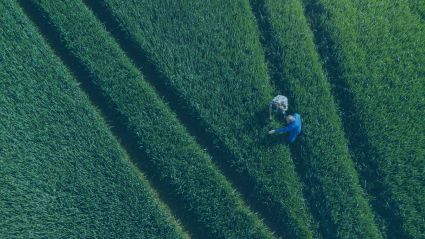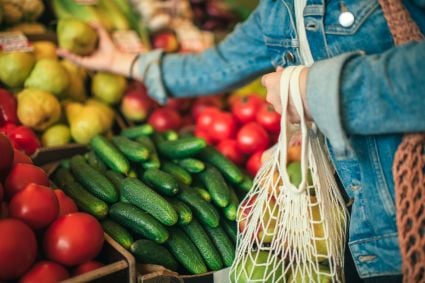
With chronic diseases on the rise and millions struggling with food insecurity, access to fresh, nutrient-rich fruits and vegetables has become more critical than ever. The "Food is Health" movement is reshaping how we think about health care by showing that better health can come from better food, not just more prescriptions. By connecting health-care systems with local farmers and producers, this movement is helping people lead healthier lives while supporting local food systems.
The idea behind this is simple: Health starts at the source—with how and where our food is grown, harvested, and delivered. Local farmers, backed by mission-driven partners, are adopting more sustainable and climate-smart farming practices, such as using fewer chemicals, rotating crops, and planting cover crops. These methods don’t just produce better food but also protect the environment, increase farmers’ resilience to climate change, and support economic sustainability. This approach brings greater transparency to the food supply chain, making it easier for health-care providers and consumers to trust the source and quality of their food.
There’s a direct link between soil health and human health: Healthier soil yields healthier crops. When farmers use regenerative practices to build up the health of the soil, they produce fruits and vegetables packed with more vitamins and minerals. That’s why many health-care systems are now sourcing food from local farms that embrace these methods. By doing so, they’re able to provide patients with fresh, high-quality produce delivered right to their doors.
"We can build resilient communities where good health starts with access to local, fresh, and nutritious food."
A prime example of this collaboration is when health-care providers prescribe medically tailored grocery boxes filled with seasonal, sustainably grown produce that meets patients’ specific health needs. These boxes go beyond just supplying food—they provide access to the nutrition patients need to better manage chronic conditions and improve overall health. Such programs are made possible through partnerships among health-care providers, local food systems, and mission-based companies that connect them. It’s a new way of delivering care that sees diet as a key part of disease prevention and management. And it’s not just beneficial for patients; it’s also good for farmers, providing them with a stable source of income.
What’s surprising about these partnerships is how they’ve benefited everyone involved. Patients who have access to fresh fruits and vegetables often report better health outcomes and higher satisfaction with their care. On the other hand, local farmers are seeing increased demand for their produce, which helps strengthen the local economy and encourages small-business growth. It’s a win-win situation that’s reshaping expectations around food sourcing and health care. Together, they’re creating a food system that values both human health and environmental stewardship.
The “Food is Health” movement is showing us that the path to a healthier future begins in the fields where our food is grown. As more people recognize the potential of these partnerships, the movement will continue to grow, creating stronger connections between soil health and human health. By bringing agriculture and health care together, we can build resilient communities where good health starts with access to local, fresh, and nutritious food.
Ultimately, this journey is one that requires ongoing collaboration and commitment. With the support of aligned companies and local farmers, these partnerships are proving that better health really can be cultivated from the ground up.






















